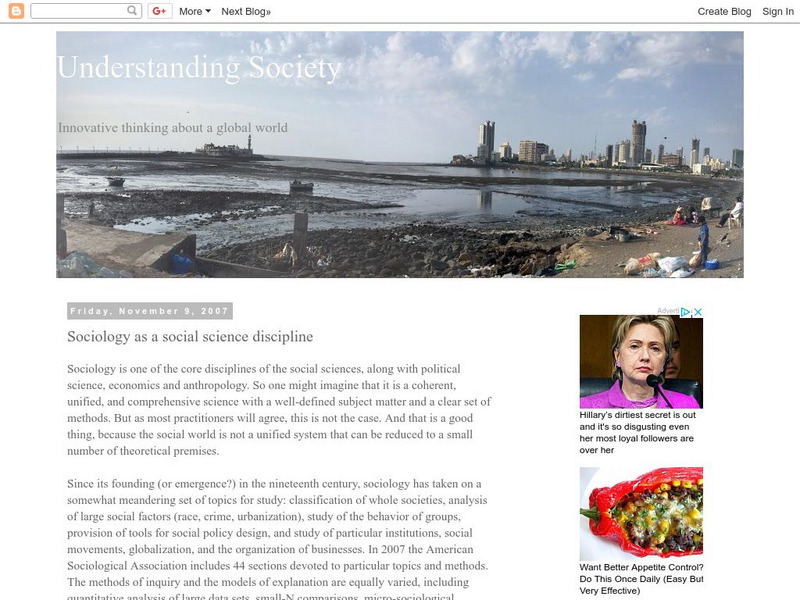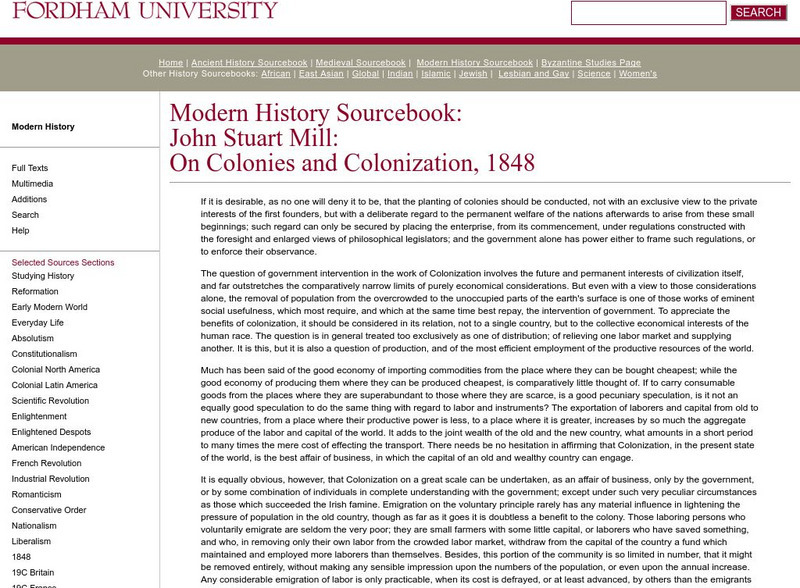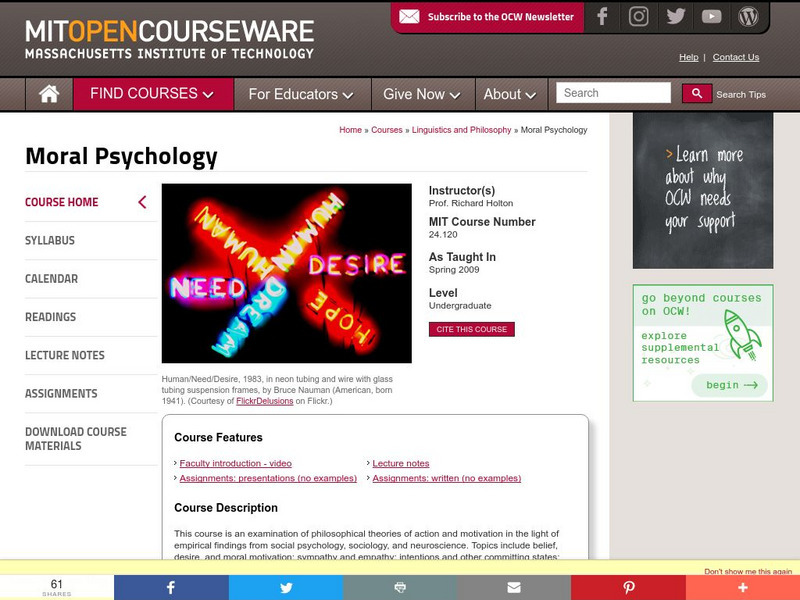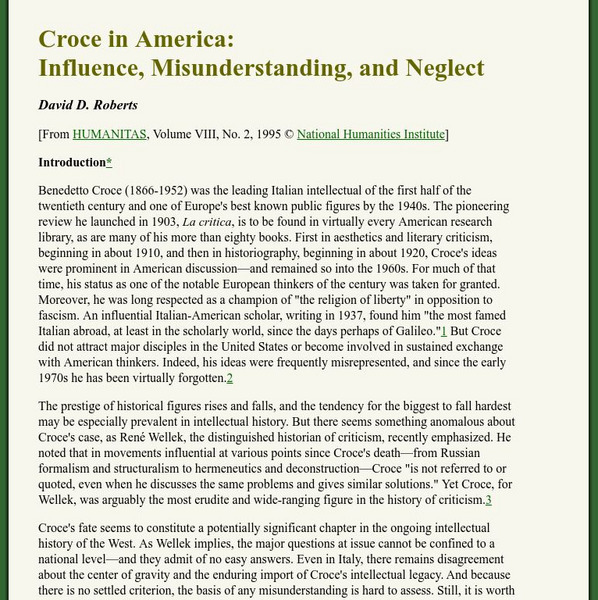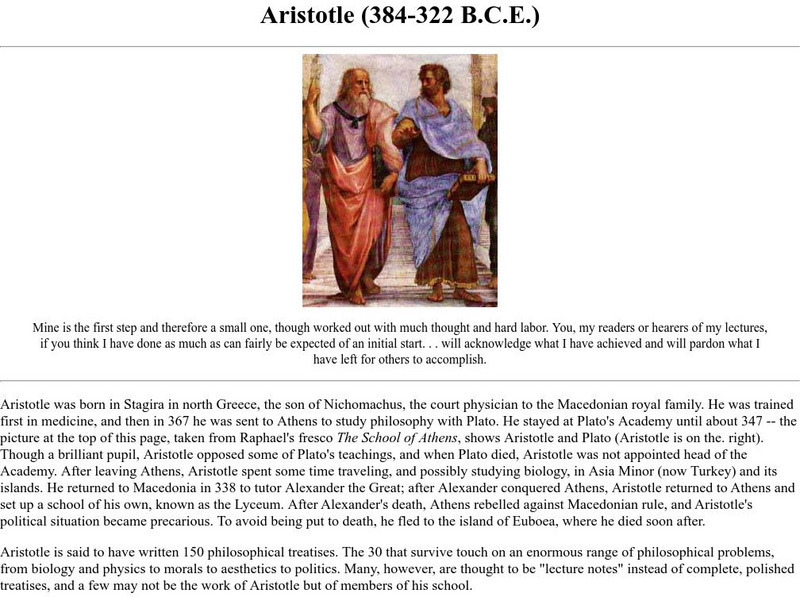Hi, what do you want to do?
Other
A Spinoza Chronology
Detailed timeline showing Spanish and Portuguese history in relation to Spinoza. Records dates of major works, as well as some of Pascal and Newton.
Other
Ellen's Place: Will Rogers 1879 1935
This page provides extensive information on the life and philosophy of Will Rogers.
Other
Hegel.net: Hegel E Texts
This site provides links to online versions of many of Hegel's writings in both German and English.
Other
The Tao Te Ching
A translation of the Tao Te Ching by Lao Tzu, the major work of Taoism (Daoism).
Other
Catholic Educator's Resource Center: The Galileo Affair
Online essay concerning the battle between Galileo and the Catholic Church over the issue of heliocentrism, or, whether the sun or the earth is at the center of the universe.
Marxists Internet Archive
Marxists Internet Archive: Hegel by Hypertext
Marxists.org provides full-text philosophical treatises by Hegel in English as well as related resources. Marxists consider Hegel as the inventor of dialectics and recognize his influence on Marx and Engels.
Other
Understanding Society: Sociology as a Social Science Discipline
The unique nature of contemporary sociology as being innately interdisciplinary is discussed, and why this diversity is a good thing. Written by philosopher Daniel Little.
Khan Academy
Khan Academy: Us History: 1754 1800: Quiz 1
A quick, five-question quiz over events surrounding the beginning of the American Revolution.
Boston University
Boston University: The Social Contract Tradition
This site presents an abstract of the social contract tradition. It also contains a very detailed overview of the ideas of Hobbes, Locke, and Rousseau.
Cosmo Learning
Cosmo Learning: Courses: Philosophy in Film and Other Media
Series of four video lectures from the Massachusetts Institute of Technology that examine the philosophical themes in films and their links to other art forms, such as literature and opera. Videos vary in length.
Internet History Sourcebooks Project
Fordham University: Modern History Sourcebook: On Colonies and Colonization
British economic philosopher John Stuart Mill's article from the Fordham University dealing with the economical benefits of colonization in other countries. This writing illustrates not only arguments in favor of imperialism, but also...
Massachusetts Institute of Technology
Mit: Open Course Ware: Moral Psychology
These resources are beneficial in illustrating the connection of tying together the philosophical look at actions individuals take with the psychological motivation behind those actions.
Blackdog Media
Classic Reader: Author: Jean Jacques Rousseau
This site features the author Jean Jacques Rousseau including a biography and the full text of the nonfiction work, The Social Contract or Principles of Political Right.
Other
Latter Rain Page: Roger Bacon's Life, Works, Philosophy
Well-rounded biography of Roger Bacon with very clear explanation of his philosophy. The focus is on his belief that knowledge can be attained through scientific experiments and through divine inspiration. Includes brief excerpt from...
Other
National Humanities Institute: Croce in America
Lengthy but informative article traces the fame and decline of Croce's philosophy in the 20th century, as well as his contributions in aesthetics, literary criticism, and historiography. Author argues that Croce's thought deserves a...
Other
Plato's Republic
Intensive look at "The Republic," by Plato. Incorporates a brief biography of Plato along with a condensed version of "The Republic". Truly gives the essence of Plato's philosophy.
Famous Scientists
Famous Scientists: Blaise Pascal
Find out about the French philosopher and scientist who was one of the greatest and most influential mathematical writers of all time, Blaise Pascal.
Famous Scientists
Famous Scientists: Empedocles
Meet Empedocles, the Greek philosopher who is best known for being the originator of the cosmogenic theory of the four Classical elements.
PBS
Pbs: Nova Online: Real Roman Recipes
"To give you a flavor of food that Romans may have eaten at the baths, we have reprinted ancient recipes." The majority of the recipes are 2,000 years old and come from Apicius, a Roman chef.
Khan Academy
Khan Academy: Us History: 1754 1800: Unit Test
Take this eleven question unit test over US history during the period of 1754 and 1800.
Blackdog Media
Classic Reader: Authors: Samuel Taylor Coleridge
This site features the author Samuel Taylor Coleridge including a biography and the full text of the poem The Rime of the Ancient Mariner.
University of California
Ucmp: Aristotle
The life and philosophical treatises of Aristotle (384-322 BCE) are surveyed, including his writings on biology, zoology and physics.
Steven Kreis, PhD
The History Guide: The Enlightenment
A great essay on the Enlightenment period of the 18th century with hyperlinks to many individuals and movements of the time. A very scholarly look at the "age of enlightenment."
Blackdog Media
Classic Reader: Authors: Johann Wolfgang Von Goethe
This site features the author Johann Wolfgang von Goethe including a biography, the full text of the novel The Sorrows of Young Werther, the poem "The Erlking", and the drama Faust Part 1.











